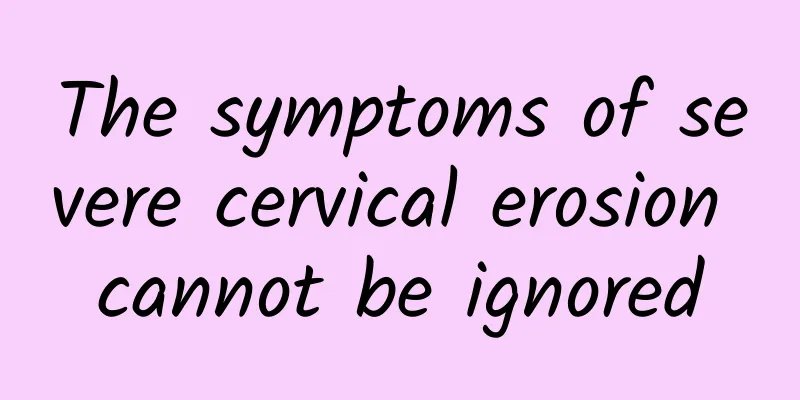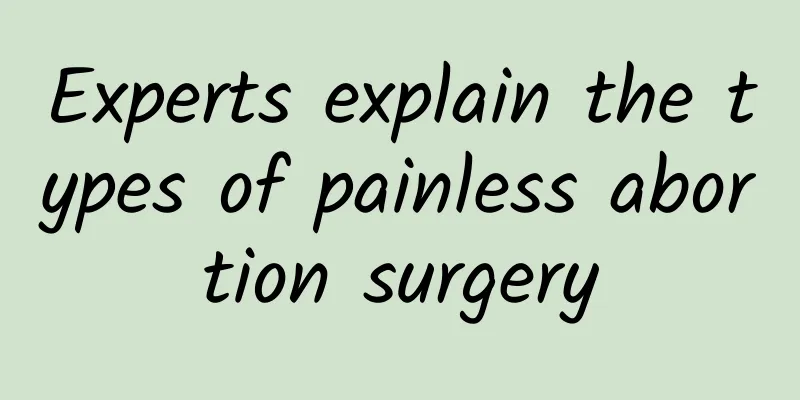Can an ovarian cyst go away on its own?

|
Can ovarian cysts go away on their own? Ovarian cysts can be divided into benign, malignant and borderline. Not all cysts require surgical treatment. Generally speaking, benign cysts such as follicular cysts are mostly less than 5 cm and about 3 cm. At this time, it should be observed for three months. If the follicular cyst shrinks or does not increase in about two months, the cyst will disappear on its own after a period of time, and no surgery is required. However, if the cyst continues to increase to more than 5 cm, surgical treatment must be performed. Patients with ovarian cysts should eat more bland, nutritious foods, correct partiality, abnormal eating habits, and are not suitable for eating irritating foods. In addition, in daily life, we should avoid high nervous tension, mental stimulation, maintain an optimistic mood, and get enough sleep. Patients with ovarian cysts should eat more foods that have anti-ovarian tumor effects, such as horseshoe crabs, seahorses, turtles, dragon ball tea, hawthorns, etc. They can take Chinese medicine ginseng, and the ginsenoside component in ginseng has been listed as a national new anti-cancer drug. Never eat irritating foods such as onions, garlic, peppers, and cinnamon. Avoid greasy, fried, moldy, and pickled foods. There are also warm and blood-moving foods such as mutton, dog meat, leeks, and peppers. We need to pay close attention to other changes in our bodies, such as sudden paroxysmal colic in the lower abdomen, gynecological examinations or B-ultrasound indicating ovarian tumor torsion, and timely surgery or conservative treatment should also be performed. If ovarian cysts are not treated for a long time, they will worsen and become malignant. In addition, the early symptoms of ovarian cysts are not obvious and are easily overlooked. They are often in the late stage and should be treated with caution. Ovarian cysts are clinically classified into functional ovarian cysts, cortical ovarian cysts, serous ovarian cysts, and mucinous ovarian cysts. The clinical symptoms are usually not obvious. If the ovarian cysts become larger, the patient may experience dull pain or swelling in the lower abdomen. At the same time, ovarian cysts can also squeeze the bladder, causing frequent urination or difficulty urinating. |
<<: What does uterine fibroids mean?
>>: What are the causes of irregular menstruation?
Recommend
How to treat uterine prolapse?
What are the grades of uterine prolapse? Uterine ...
What happens if I haven’t had my period for three months?
What happens if I haven’t had my period for three...
Is adnexitis the same as pelvic inflammatory disease?
In life, many female friends have very vague defi...
What are the methods for treating vulvar leukoplakia?
What are the methods for treating vulvar leukopla...
Why do I get dysmenorrhea when I'm angry?
Anger causes dysmenorrhea, which is caused by cha...
Commonly used drugs for bacterial vaginosis
Many people know that bacterial vaginosis is a di...
How to care for bacterial vaginosis
Bacterial vaginosis is a disease caused by a larg...
What are the symptoms of ectopic pregnancy?
Ectopic pregnancy is clinically called ectopic pr...
How to check for vaginitis
Methods for examining vaginitis include physical ...
Tell you how to treat cervical cysts
Cervical cyst is a type of chronic cervicitis. Wo...
Improper post-abortion care can cause pelvic inflammatory disease
After an abortion, the body's resistance is r...
How to regulate and restore normal menstruation
How to regulate and restore menstruation to norma...
Briefly describe the symptoms of hyperplastic vulvar leukoplakia
Vulvar leukoplakia is now suffered by many female...
What to do with chronic pelvic inflammatory disease
What to do with chronic pelvic inflammatory disea...
How to treat adenomyosis at the age of 44
The incidence of adenomyosis has been increasing ...









